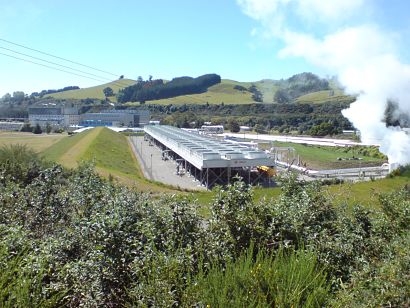
2010-2020 was a decade of sustained growth disrupted at the end by the economic impacts of the COVID-19 pandemic, finds the European Geothermal Market Report 2020 published today by the European Geothermal Energy Council (EGEC).
“Since the first EGEC Market Report back in 2010, the European geothermal sector grew and transformed: we have seen bad policy decisions stop its rapid growth in several key markets, but we have also seen this technology becoming mainstream with geothermal heat pumps over the last decade” said Miklos Antics, EGEC President. “The present decade challenged us with a difficult and complicated start. We are however confident that we have just started the Geothermal Decade, and that rapid growth awaits the geothermal sector.”
Philippe Dumas, EGEC Secretary General, added that the past 10 years highlight how rapidly the geothermal sector can evolve, having witnessed the rapid emergence of leading geothermal countries in heating and cooling, such as the Netherlands and Germany.
“However, the past decade also tells a story of missed opportunities, with a few countries not living up to the expectations of 10 years ago” said Mr Dumas. “This is mostly due to unsuitable policy decisions, lack of recognition of its huge potential and insufficient awareness about its competitiveness.”
By the end of 2020 Europe had 3.5 GWe of installed geothermal electricity capacity. This was distributed over 139 power plants. In a major break with previous years, no new country (apart from Turkey) commissioned a geothermal power plant in 2020. This was due to the COVID-19 pandemic as well as the lack of suitable and robust support frameworks to accompany the uptake of geothermal electricity.
In 2020 there were 350 geothermal district heating systems in operation, and a further 232 in various stages of development. However, 2020 is defined by no new systems coming online, apart from the extension of Hellishedi in Iceland. Despite the COVID-19 short term consequences, the European geothermal heating and cooling industry remains on a positive trend. Most European countries are looking to significantly expand their use of this renewable resource as they pursue policies to decarbonise heating and cooling.
The European geothermal heat pump market continued along the recent stable trends in 2020, despite significant decreases in sales in some national markets (such as Poland) because of the coronavirus pandemic. The geothermal heat pump market remains quite concentrated, as most of the sales take place in some key countries, the Nordic ones above all.
The 2020 Geothermal Market Report confirms that geothermal energy needs supportive policies, a fair competition with carbon pricing and ending of fossil fuel subsidies, a smooth licensing and permitting framework, and investments in innovation to play what can be a decisive role in energy transition.
For additional information:

